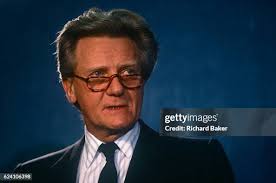The Political Legacy of Michael Heseltine

Introduction
Michael Heseltine, a prominent figure in British politics, has made significant contributions throughout his career, shaping the landscape of governance in the UK. Known for his charismatic leadership and business acumen, Heseltine played a vital role during pivotal moments in the late 20th century, particularly within the Conservative Party. Understanding his influence is crucial for analysing contemporary politics in the UK and the evolution of conservative ideology.
Career Highlights
Born on March 21, 1933, Heseltine served as a Member of Parliament for over three decades, representing the Conservative Party. He held various ministerial positions, including Secretary of State for Defence and Secretary of State for the Environment, where he was instrumental in implementing significant policies aimed at urban renewal and regional development. Heseltine’s advocacy for economic revitalisation in post-industrial cities has left a lasting mark on urban policy.
A pivotal moment in his career was his opposition to Prime Minister Margaret Thatcher’s leadership during the latter years of her premiership. In 1990, he challenged Thatcher in a leadership contest, showcasing his willingness to diverge from party orthodoxy in favour of a more modern approach to conservatism. Although he ultimately lost, his challenge contributed to the political dynamics that led to her resignation.
Recent Activities
In recent years, Heseltine has remained active in public life, frequently commenting on current political issues. He has been a vocal advocate for remaining in the European Union, warning against the challenges that Brexit poses to Britain. His advocacy for a more inclusive and progressive vision of conservatism reflects his belief in the importance of adapting to change, which he argues is crucial for the party’s future success.
Conclusion
The legacy of Michael Heseltine is characterised by his ability to navigate and influence the stormy waters of British politics. His commitment to modernising the Conservative Party and his emphasis on urban development continue to influence current political discourse. As the UK navigates its post-Brexit identity, Heseltine’s insights and experiences remain relevant, proving that his contributions to British politics extend far beyond his time in office. In an era of increasing political polarisation, Heseltine’s moderate approach offers a hopeful perspective for future leaders and policymakers.
